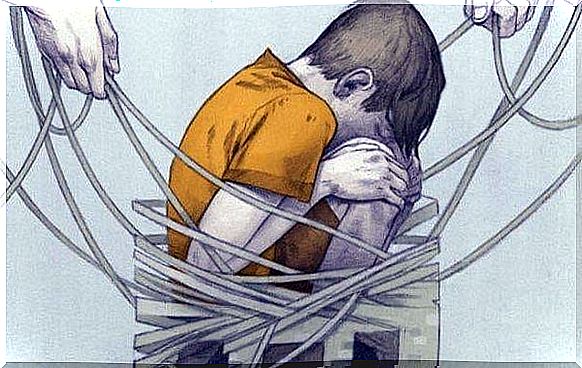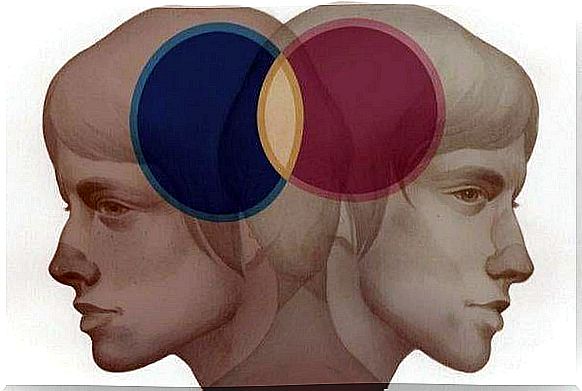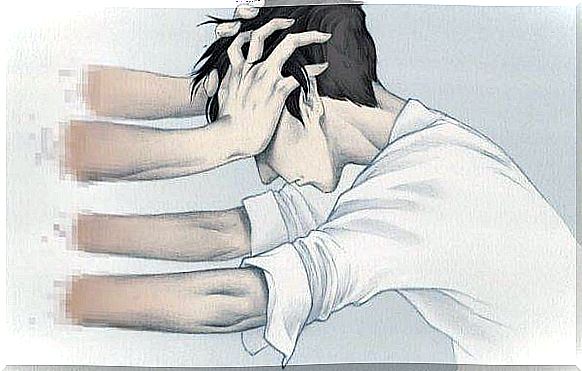Violence Has Been Learned … But It Can Also Be Forgotten

Ever since the humanities began to study violent phenomena in the mid-20th century, one question surrounds all research on this problem: is human violence instinctive or learned? Numerous hypotheses have surfaced. However, one thing is quite clear: aggressive behavior has manifested itself in all cultures and at all times.
Concerns about this have grown in recent decades. World Wars showed that there are no limits to a person’s ability to hurt each other. These and many other facts have led us to see ourselves with eyes of fear.
Perhaps due to these events in history, aggression as a concept has received negative connotations. But this has not always been the case. In fact, without the ability to attack and respond to aggression, we as a species would not have survived. However, people have taken the violence too far, and that is worrying here.
Aggression and violence, two different concepts
Sometimes we think that aggression and violence are the same thing, but that is not the case. Aggression is instinct. It is innately a part of us, it is a imprint that is stamped on our minds. It involves numerous physical and chemical processes that occur automatically by us without being aware of them.

Aggression is biological. It makes us go into alarm mode if there is any possibility of danger. It helps us defend ourselves and adapt to the environment. For example, it is normal and healthy to react aggressively if someone tries to push us. Our instinct for survival means that we respond to a threat with an aggressive reaction.
Violence, on the other hand, is cultural. It consists of behaviors designed to hurt others for reasons other than our objective need to survive. Only people show violent behavior; no other animal shows it.
That is why violence has been learned. Aggression is instinctive, but violence is symbolic. This means that we come into this world with innate tools with which we respond aggressively when necessary to protect our lives. But the desire and tendency to hurt others for various reasons has been learned. The good news is that we can also forget that thing we learned.
Learning violence and forgetting it
Almost all violent people justify their behavior on the wrong grounds. Most claim that they hurt others to defend themselves or to teach others something positive through violence. It is also common for a victim to be accused of inciting violence. Nor is it unusual to invoke higher principles, be they religious or political.
Behind these misconceptions are complex and distorted ideological structures. Violence is first symbolic (culturally bound) and then only physical. For example, enslaving black people was justified by the fact that they have no soul.
“Scientific” books were written about their “inferiority” and their “evil” behaviors. In this way, advocates of slavery justified physical violence against African blacks. The same thing happened with women, indigenous peoples and animals.

People say that violence as “self-defense” is acceptable. However, there are numerous cases where there were no grounds for such a defense; the threat did not exist. Other justifications include religion: some scriptures describe the existence of a woman as a curse.
Similarly, many wars consist of both parties opposing each other’s gods, and therefore they seek to wipe out their enemies and their god from the face of the earth. As you’ve certainly seen and heard, it’s really common for people to justify their violent actions with their “beliefs.”
End of violence
Violent acts must therefore be eliminated in our view, or else they cannot be eliminated at all. We may remove gun licenses or remove a person from a physically abusive situation. But if someone else thinks this person isn’t worth saving, the violence comes back. Then violence can take on a psychic form such as biting criticism, offensive mockery, or icy indifference, but it is still violence.
In short, we don’t have to be afraid of aggressive emotions because they are part of our instincts. But we need to distance ourselves from violent stimuli that only increase the violence.









